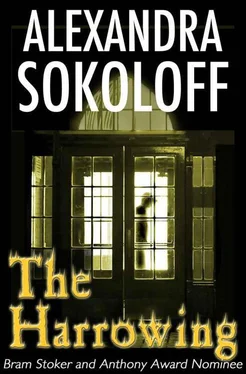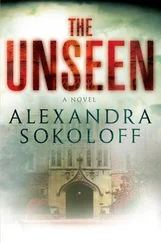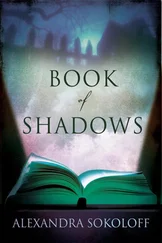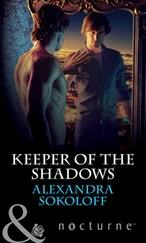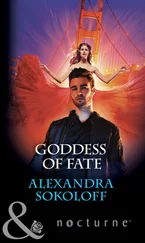Lisa was already pushing the door open, striding inside. Robin followed, more hesitantly.
Cain lay back on the bed in the dim light from the window, playing an acoustic guitar, an intricate melody. He barely looked up as Lisa strode to the bed.
Robin hovered inside the open door, looked around the room. On the floor-to-ceiling shelves, law books competed with a staggering collection of vinyl and CDs. An electric keyboard and guitar were shoved in one corner. Posters of Malcolm X, Che Guevara, and Johnny Rotten glowered from the walls. Old school , she thought. And that’s Cain, too .
On the bed, Cain was pointedly ignoring the yearbook Lisa held open in front of him.
“You found this open on the floor, huh? Right to this picture. Isn’t that convenient.”
Robin bristled, defensive. “It wasn’t open.” But it was set off from the other books. Almost positioned, a voice in her head reminded her. It could be a setup—someone playing a game ….
Lisa was speaking impatiently. “Oh, come play with us. You know you want to.” Lisa leaned over Cain seductively, one knee on the mattress.
Cain didn’t budge. He looked up at her with that level gray gaze. “Don’t you ever get tired of yourself, Marlowe?”
Lisa’s eyes blazed, but she didn’t flinch. “Every minute of every day, Jackson.”
The two locked eyes for a long moment, a hot, contentious look. Robin felt herself bristling, something twisting in her chest.
Cain shook his head. “Pass.” Then he looked directly at Robin. “And I think you should, too.”
Robin looked back at him, startled. Before she could respond, or even process, Lisa flared up at him. “Crap out if you want, but don’t spoil everyone else’s fun.”
Cain dropped his eyes to the guitar. “Whatever.” He bent over the strings and didn’t look at Robin again.
Robin felt her face burning, but Lisa grabbed her arm and pulled her out of the room, slamming the door behind them so hard that the NO MINORS sign fell to the carpet.
But as she dragged Robin toward the stairwell, Lisa was smiling, cheerful—that constant, mercurial shift. “He’ll be down,” she informed Robin lightly. “Trust me.”
They found Martin’s room at the very dark end of a third-floor hall. Unlike most of the other student rooms, his door was unadorned by any message boards, posters, or signs.
Then Robin caught sight of a small rectangular metal piece nailed into the door frame just below eye level, almost unnoticeable against the dark wood: a little scroll with Hebrew lettering. The word mezuzah flashed through her mind, though she wasn’t sure that was right.
Lisa was knocking and knocking. “Martin, we need you. Pretty please? I’ll breathe on your glasses….”
There was no answer. Lisa pressed her ear to the door, listening, then stepped back, shaking her head. She pushed back her hair, defiant. “Come on.”
Robin followed Lisa down the main stairs to the lounge. Lisa’s face was grimly determined; she hugged the yearbook to her chest like a shield. But some of the energy had gone out of the mission. Privately, Robin had serious doubts about what they could do without the others. There had been something between them the night before. Maybe the sudden, unexpected intimacy, maybe just the drinking and smoking. But whatever it was, it was all of us. She was quite sure.
She followed Lisa through the archway of the lounge and almost ran into her as Lisa abruptly halted.
Martin was there, standing over the round table with a legal pad and a pen, looking down at the board, a small figure amid the weirdly tumbled furniture.
Lisa said, “Hey!” loudly, and he jolted, clearly startled to see them, almost flustered at being discovered.
Lisa crossed the carpet to join him in front of the fireplace, blithely unaware of his consternation. “We were just looking for you,” she informed him, with that exasperating imperiousness that Robin was beginning to warm to. “We want to do another sitting. You’re game, aren’t you?”
Martin blinked at her. “Quite. I’ve been reading up on Ouija boards. There’s a good bit of legitimate research on the subject on the Internet.” He took off his glasses, gestured at the board like a small professor. “Our experience wasn’t unique, you know. It’s amazing how many cases of supernormal effects have been reported by reputable people.”
Lisa winked at Robin. “ Reputable people.”
Martin put his glasses back on and looked to Robin, a diffident glance. “Something happened between us last night…the collective focus on the board, possibly the combination of personalities, some link between all of us…”
Robin was startled to hear what she had just been thinking coming out of Martin’s mouth. Behind them, the wind blew a spattering of rain against the windows, like a handful of tiny rocks.
“We achieved some kind of mental communication at least. Possibly precognition, as evidenced by the game scores in the newspaper.” Martin glanced at Robin again. ‘Taken from a psychological perspective, it would make a good subject for a term paper.”
“Hate to burst your Freudian bubble,” Lisa said loftily. She slapped the yearbook open on the table in front of him.
Martin stared down at the photo of Zachary, clearly taken aback.
“Zachary was as real as you and me. He lived here. He probably died here.”
“A ghost?” Martin looked up, not at Lisa, but at Robin. “Surely you don’t believe that.”
Lisa looked offended. “What’s your supernormal explanation for the furniture?” She waved around at the shambled contents of the room.
Martin blinked at her in the grayish light. “It’s highly likely the furniture was a prank. We can’t discount the human element.”
It was a perfect deadpan delivery. Robin and Lisa burst into spontaneous laughter. Lisa reached out, tousled Martin’s hair with something like affection. “God, no—not the human element.”
As if on cue, Patrick sauntered in, marginally dressed in sweats and a jersey. He yawned, surveyed the room and the others lazily. “What, no food?”
Robin and Lisa looked at each other and collapsed into giggles again. Martin smiled shyly, enjoying the joke. Robin felt a rush of warmth and camaraderie, and found, surprised, that she was on the verge of tears.
Patrick looked around at all of them, then pulled a new bottle of Jack Daniel’s from the waistband of his sweats. “Lucky I came prepared.”
Lisa stooped to pick up the candles from the floor in the back. She arranged them on the table beside the board and fished in a pocket for a lighter.
Almost automatically, Robin turned and knelt beside the fireplace, reached for logs to make a fire. Patrick hefted the yearbook, flipped through it. “So that’s Zach, huh? My man don’t talk much like a 1920s ghost, though, do he?”
Lisa rolled her eyes. “What does a 1920s ghost talk like?”
Patrick layered a British accent over his Southern one. “I say, old sport. Ripping good.”
Lisa scoffed, “He didn’t say he was English.”
But as they bickered, Robin thought fleetingly that Patrick was right. There was something off about Zachary’s speech patterns. Inconsistent.
Martin spoke impatiently, as if reading her mind. “The point is, it’s not a ghost. The messages are coming from us.”
He glanced down at his legal pad, which Robin could see was covered in notes.
“The history of the Ouija board is fascinating, really. The game became quite the rage in the 1920s. The occult movement, with its various forms of mysticism—séances, tarot, ceremonial magic, Kabbalah”—he glanced at Lisa briefly—”had taken off in Europe, and then America, due to the unprecedented number of deaths in World War One. And it was a dark time in general—World War Two already on the horizon, and of course…” He trailed off, took his glasses off and wiped them.
Читать дальше
